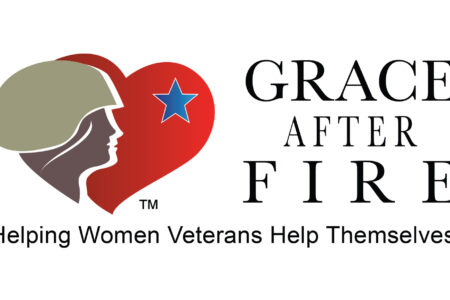
Share On Social!
Childhood trauma. Adverse childhood experiences. Toxic stress. Trauma-informed.
These are NOT FOUND anywhere in the proposed objectives for Healthy People 2030.
We need you to speak up for childhood trauma and adverse childhood experiences to ensure the Healthy People 2030 objectives guide our nation in addressing the leading public health concerns.
Drafted by our Salud America! research team, with help from Dr. Colleen Bridger of San Antonio Metropolitan Health District and Dr. Joe Hendershott of Hope for the Wounded Student, below are three unique opportunities to provide a public comment.
Send an Email: Address Childhood Trauma & ACEs in Objectives in Healthy People 2030!
Click here to easily send the following email to the U.S. Department of Health and Human Services urging them to address childhood trauma and adverse childhood experiences (ACEs) in the currently proposed topics and objectives for Healthy People 2030:
Dear Healthy People 2030 Leaders,
I was surprised to learn “adverse childhood experiences (ACEs)” and “childhood trauma” are found 0 times in 63 pages of proposed objectives for Healthy People 2030.
Adverse childhood experiences (ACEs), like child maltreatment, family member substance abuse, discrimination, and chronic poverty, can be toxic to developing brains and bodies, affecting mental and physical health, social development, and risk-taking behavior through the lifespan. Decades of evidence confirms that exposure to ACEs increases the risks of delayed cognitive development, mental health problems, and chronic health diseases, especially among Latino and other minority populations.
ACEs are a critical public health issue.
I strongly urge you to include objectives addressing ACEs and trauma-informed care services in Healthy People 2030.
Send an Email: Make ACEs its Own Topic in Healthy People 2030!
 In addition to the email above, the Salud America! team along with Drs. Bridger and Hendershott propose a more extensive focus on childhood trauma and ACEs in Healthy People 2030.
In addition to the email above, the Salud America! team along with Drs. Bridger and Hendershott propose a more extensive focus on childhood trauma and ACEs in Healthy People 2030.
We believe ACEs should be its own topic.
We’ve even drafted a detailed topic description for a topic on ACEs, complete with 21 specific objectives and science-based rationale for each.
Click here to read our team’s ACEs topic.
Then click here to easily email this full proposal to the U.S. Department of Health and Human Services by Jan. 17, 2019.
Make a Public Comment on Healthy People 2030
In addition to the emails above, the U.S. Department of Health and Human Services is allowing people to register and make online public comments on Healthy People 2030 objectives, one by one.
Here are the steps to submit an online public comment:
- Register.
- Copy one model comment below related to childhood trauma and ACEs, then click on the topic area link to reach the public comment webpage for that topic.
- When you arrive on the topic webpage, scroll down and paste the model comment in the “comment section.” You can also select if you want your comment publicly viewable and if the comment is on behalf of your organization or your individual views.
- Hit “submit comment.”
Here are the topics and our model comments:
- Access to Health Services: Increase the capacity of the primary care and behavioral health workforce to deliver evidence-based, trauma-informed care.
- Access to Health Services: Explore the impact of trauma-informed accreditation on health care system performance and community health outcomes.
- Early and Middle Childhood: Increase the capacity of the child care, early education, and education workforce to provide trauma-informed support for students.
- Early and Middle Childhood: Explore the impact of trauma-informed accreditation on school attendance and performance.

Screenshot of comment made on Research Objectives in the Early and Middle Childhood topic area. - Educational and Community-Based Programs: Explore and expand the use and impact of trauma-informed certification entities that certify people that work with kids to be trauma-informed.
- Educational and Community-Based Programs: Explore the impact of trauma-informed accreditation on community-based organization performance and community health outcomes.
- Educational and Community-Based Programs: Increase the capacity of the higher education and workforce development to include accredited trauma-informed care training.
- Injury and Violence Prevention: Increase the capacity of the criminal justice workforce to provide evidence-based trauma-informed services.
- Injury and Violence Prevention: Reduce the number of children and youth exposed to adverse childhood experiences.
- Injury and Violence Prevention: Increase the number of children and youth exposed to adverse childhood experiences who are identified and receive evidence-based trauma-informed care services.
- Maternal, Infant, and Child Health: Increase the percentage of pregnant women who are screen for adverse childhood experiences.
- Maternal, Infant, and Child Health: Increase the proportion of physician office visits made by children, youth and pregnant women who have been exposed to ACEs that include evidence-based, trauma-informed counseling, education or referral.
- Public Health Infrastructure: Explore the impact of trauma-informed accreditation on health department performance and community health outcomes.
- Public Health Infrastructure: Increase the capacity of state public health agencies to monitor adverse childhood experiences.
- Social Determinants of Health: Increase the proportion of adults who perceive great risk associated with adverse childhood experiences.
You have until Jan. 17, 2019 to submit one or more of the above.
Thank you for caring about the health of Latino and all children!
Explore More:
Trauma & ACESBy The Numbers
142
Percent
Expected rise in Latino cancer cases in coming years



